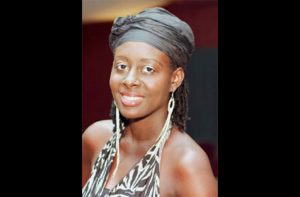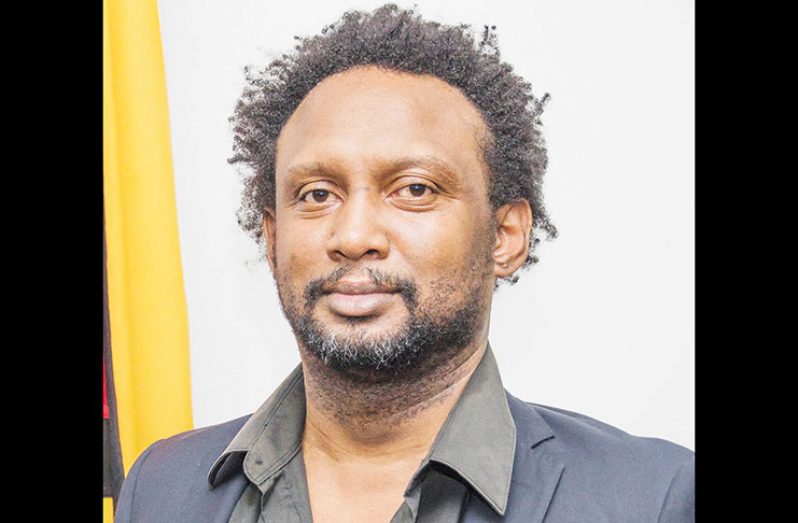-head of literary team defends ‘transparent judging process’
CONCERNS have been raised over the judging criteria for literary pieces submitted by persons interested in forming part of the Guyana literary arts contingent at the Caribbean Festival of Arts (CARIFESTA) in August.
Barbados will host the 13th edition of CARIFESTA and the Ministry of Education’s Department of Culture has announced that Guyana will field a 60-member contingent at the cultural event. This country has traditionally participated in every aspect of the creative arts, including the literary aspect, which is usually the smallest group.
While the process for selecting representatives in the literary field has not been questioned, the judging criteria for the literary pieces have been. Mosa Telford, who is no stranger to the arts, has questioned several practices employed by the sub-committee overlooking the literary arts. That committee is headed by Ruel Johnson, Cultural Policy Advisor to the Minister of Education.

Telford, who represented Guyana twice at CARIFESTA, applied this year to be part of the three-member literary team. However, she said that she was informed on Wednesday that she was not successful in her bid. She said that writers were asked to submit essays about why they should represent Guyana, along with samples of literary works, their literary Curriculum Vitae (CV), and their biographies.
Having not been successful, the writer said that “the judges must have had their reasons” for not selecting her, so she accepts and respects their decision. However, she expressed concern over several transparency issues, including the fact that the applicants were not made aware of the criteria by which their work would be judged. “…the literary aspect I don’t know what the judging criteria was. Other folks deserve the chance to go to CARIFESTA [but] I just wish there was more transparency,” she said.
The writer also shared that applicants were not informed as to who make up the panel of judges and when she made an attempt to enquire, she was told by a ministry official that it would be unethical for her to be told. “I don’t know who the judges were,” she told the Guyana Chronicle.
She also pointed to similar cases in the performing and visual arts areas, where some persons believe that persons were chosen to represent the country even before auditions were called. “I have also heard complaints from designers who also got information that designers were already chosen when auditions were called,” Telford related.
Transparency
But head of the literary arts planning committee, Ruel Johnson, has since defended the process for selection which he described as “transparent.” According to Johnson, prior to the change in government, there was no transparent, competitive process for selection. Rather, he said that selection was done on the basis of political affiliations and nepotism.
He noted that for this reason, Education Minister Nicolette Henry has continuously emphasised and pushed for a transparent process in the selection round, since those individuals would be representing the country. Speaking directly to the issues raised about the literary arts contingent, Johnson noted that a plan of action had been developed earlier this year by sub-committees for each aspect of the arts. He said that these plans of action, which were submitted to the minister, were to guide the selection preparation of the committee.
He said that subsequently, judges of the highest calibre in the literary field were identified and given the judging criteria, which had been developed by the committee. Once this had been done, Johnson said that advertisements were then published in several newspapers for local writers to apply to be part of the literary team to represent Guyana at CARIFESTA XIII.
He noted too, that an email account had been set up for electronic submission of the candidates’ application and the judges were given full access to it. He added that two persons who had submitted hard copies were asked to submit electronic copies and this was done, which qualified all entries for consideration.
With the judging criteria based on a points-scoring system, Johnson explained that the judges requested that they be allowed the freedom to deliberate on the entries, if need be, due to the complexity of literary work.
He said that after the judges had made their final decision on the three persons to represent Guyana, they provided a report to the committee on each candidate’s performance and how points had been awarded. He disclosed too that one of the three individuals identified was forced to reject the offer due to the fact that another opportunity for his personal development had arisen. As such, the judges agreed that the person who achieved the fourth highest points was asked to be part of the team.
A former winner of the Guyana Prize for Literature, Johnson said that he too was qualified to be a judge, but that would have compromised the integrity of the system. As such, he made a conscious decision not to have a hand in the decision-making process.
He was keen to note though, that because of the new judging system in place, which ensures transparency, persons can go back to examine the application of each candidate and see how points were awarded. “The minister was deliberate in her efforts to ensure transparency for this reason. So that if someone is not satisfied with the results, the applications and scoring sheets are there for them to examine,” he said.



.jpg)










